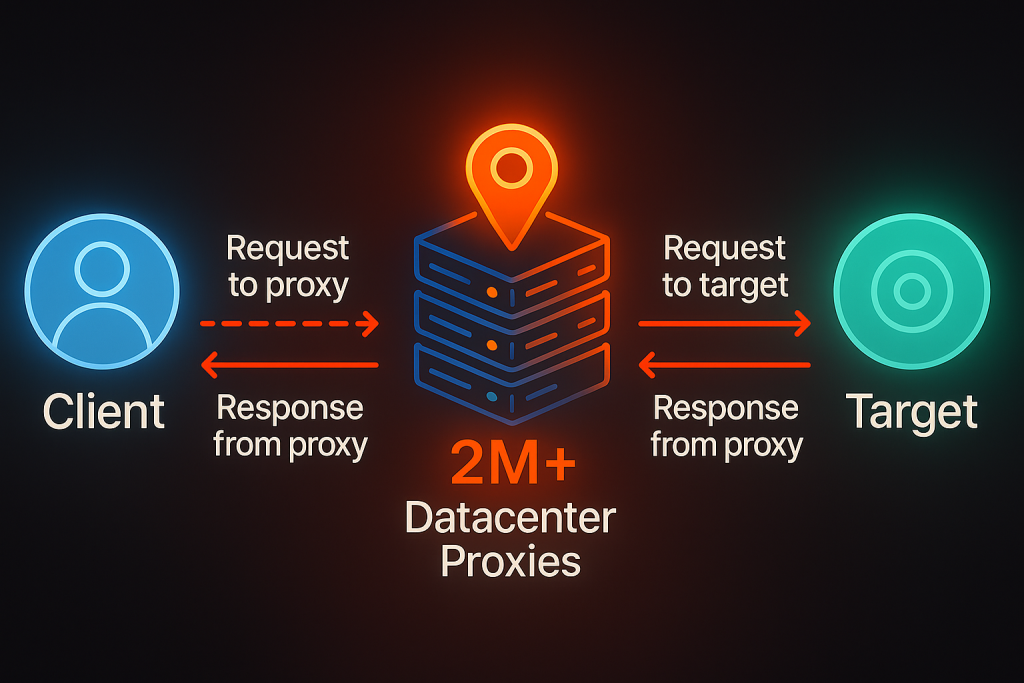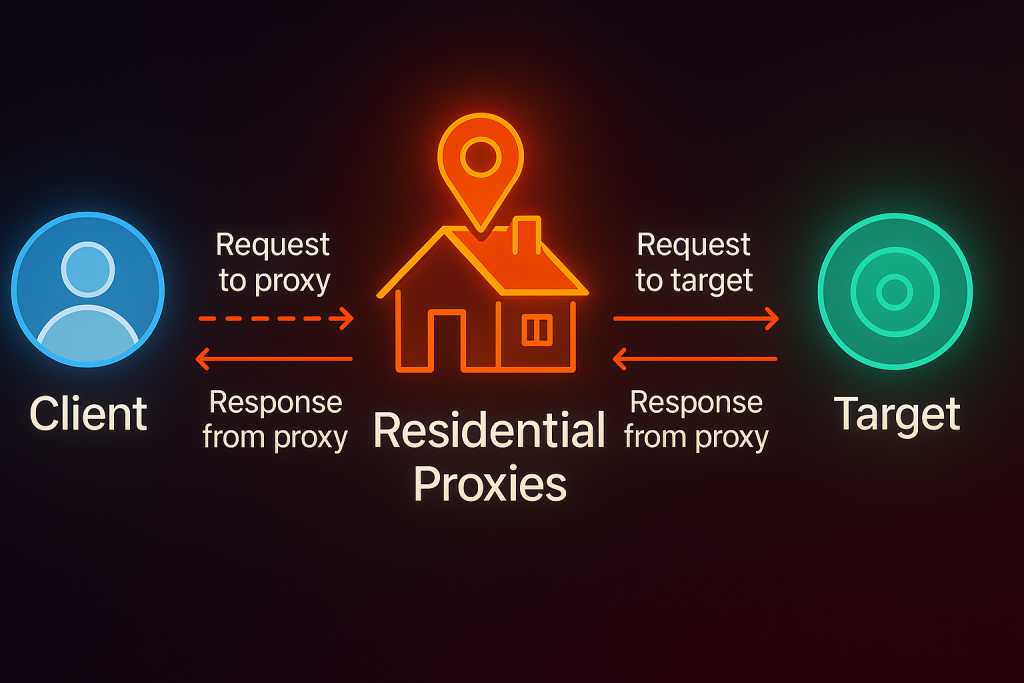Global Residential & ISP Proxies | Torch Labs
When it comes to web scraping, market research, or even purchase automation, choosing the right proxy is non-negotiable. Should you go with budget-friendly datacenter proxies or play it safer with legitimate residential proxies? Let’s help you cut through the noise.

Datacenter proxies are generated from servers hosted in data centers, making them fast, scalable, and non-affiliated with real user ISPs.
These proxies typically originate from cloud providers rather than individual devices, providing users with numerous connections at high throughput, perfect for tasks where speed and volume matter more than surfing the web undetected.

Unlike datacenter proxies, residential proxies borrow IP addresses from real devices, residential connections provided by ISPs. These proxies funnel traffic through actual user connections, cloaking scraping behavior in legitimate user activity.
When it comes to choosing the right proxy type, context is king. Here’s a categorized comparison table to make the subtle differences obvious:
| Feature | Datacenter Proxies | Residential Proxies |
|---|---|---|
| IP Source | Servers in datacenters | Real residential devices (via ISPs) |
| Speed & Latency | Extremely fast | Slower than DC, but adequate |
| Reliability for Scraping | Higher block rate | Lower block rate, highly reliable |
| Cost Efficiency | Inexpensive | Pricier, especially premium IP pools |
| Legitimacy Score | Low (e.g. bots, tests detectable by sites) | High (passed off as regular user sessions) |
| Ideal For | High-volume, speed-dependent tasks | Accessing Geo-specific or protected content |
Platforms like Amazon, Nike, or advanced search interfaces SWEAR by rate limits, fingerprint matching, and anti-bot behavior scripting to fight scrapers. Here’s how datacenter and residential proxies hold up:
For example:
“A retail-price comparison bot using residential IPs was blocked after 8,000 fetches. The same bot on datacenter IPs was limited after only 300 requests per domain.”
Proxy costs can vary widely based on providers, commitments, and tiers. Let’s compare generally accepted market bands:
 Datacenter Proxies (per GB/IP): $0.50 – $1.50/GB or $2-$5/month/IP. Good fit for predictable or long-runtime tools.
Datacenter Proxies (per GB/IP): $0.50 – $1.50/GB or $2-$5/month/IP. Good fit for predictable or long-runtime tools. Residential Proxies: $5 – $15/GB. Slightly costlier but dramatically safer, especially for novice scrapers or frequent automation.
Residential Proxies: $5 – $15/GB. Slightly costlier but dramatically safer, especially for novice scrapers or frequent automation.Not sure which side of the datacenter vs residential proxies debate fits you? Use this checklist:
Sitting comfortably between datacenter and residential proxies are ISP proxies, hybridized proxies hosted in datacenters but assigned via ISP-tagged residential IP ranges. You get weeks-long static IPs, yet the “trust” factor of a human touch.
ISP proxies offer long session cookies, recurring behavior, and great success with mobile or browser-logged endpoints.
It’s not about finding a winner, it’s about selecting the best tool for the scenario.
FAQ
Q:What are datacenter proxies used for?
A:Datacenter proxies are primarily used for web scraping, data mining, SEO monitoring, price aggregation, and bypassing geo-restrictions. They help users avoid IP bans, maintain anonymity, and collect large amounts of public data quickly. Their high speed and cost efficiency make them ideal for high-volume automated tasks.
Q:What is the difference between residential IP and datacenter IP?
A:Residential IPs come from real ISPs and are linked to actual home devices, making them appear highly legitimate and harder to block.
Datacenter IPs, on the other hand, are generated from server farms and cloud providers. While faster and cheaper, they are easier to detect and may face higher block rates on protected sites.
Q:Are residential proxies illegal?
A:Using residential proxies is generally legal. However, what matters is how you use them. Activities like bypassing geo-restrictions, scraping protected data, or managing multiple accounts may violate platform policies or local laws. Always check regulations before using proxies commercially.
Q:What are the three types of proxies?
A:The three main proxy types are:
HTTP Proxies – Best for browsing and lightweight scraping tasks.
HTTPS (SSL) Proxies – Secure and encrypted, ideal for sensitive data.
SOCKS5 Proxies – More versatile, handling all types of traffic, including P2P and streaming.